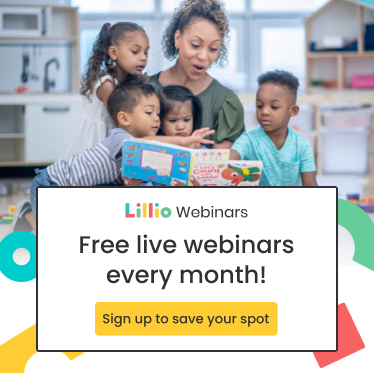5 Concerns Every Montessori Parent Has
Choosing a school can be one of the most nerve-racking experiences for a parent. After all, the decision that they make in these formative years can impact the rest of their child’s life. For parents considering non-traditional education styles like a Montessori school, this process can be even more anxiety-inducing. No matter how many 5 star reviews or recommendations a school may have, parents will always have their concerns — after all, that’s their job as great parents!
Whether you’re a parent evaluating school options or an early childhood educator at a Montessori school, chances are you can relate to some (if not all) of these top questions that parents usually have.
Am I choosing the best option for my child?
At a fundamental level, parents will be second-guessing whether they have made the right choice to send their child to a Montessori school as opposed to a traditional one. For everyone’s benefit, parents and educators should make sure that it truly is the right option for their needs based on the parents’ expectations.
During this decision-making stage, parents need all the information available to ensure they have a complete understanding of what a Montessori education looks like. Educators should go over the process with them in as much detail as possible and never assume that parents have done all of their research already. Now is a great time for parents to receive a take-home pamphlet that clearly outlines the school’s approach to education, and what resources will be provided so they can refer back to it as they get closer to making their decision.
Parents will also want to know who exactly their kids will be spending their days with. School administrators and teachers should be readily available to answer any questions that parents may have, and provide them with easy access to everyone’s qualifications.
Will my child be able to transition to traditional school later?
Absolutely!
Skills learned in Montessori school can actually serve to set children up for success in a traditional school should there be a need to switch. There will be a transition period, of course, but Montessori schools are great at teaching children skills in socialization, self-motivation, coping with new situations and responsibility, which will all set them up for success for if the time comes to move to a traditional public or private school.
Does Montessori prepare my child for how the real world works?
Does your day involve sitting in a room filled with people your own age as someone stands at the front and lectures? Or do you have your own specialty that you have gravitated towards and continue to develop in?
At a Montessori school, children will learn about self-direction, exploration, socializing and even leadership because of the mixed-age classrooms, all of which will set them up for success throughout all aspects of their lives in the years ahead.
How will I know what they are learning?
Unlike a traditional school where a set curriculum tells parents what their child is learning, a Montessori school needs detailed reporting and tracking to understand what a child has been up to all day. If a school uses childcare software like HiMama, parents can have easy access to program planning, daily reports, and even live updates throughout the day (complete with photos which can be the most powerful ‘report’ of all). This makes sure everyone is fully informed, so parents will have all the information they need to have a handle on their child’s education.
How can I track their progress if there are no grades?
A letter grade is a clear and concise metric to know how a child is performing, so how will parents know when their child is succeeding or failing without one?
A Montessori education is much more qualitative, which is why it’s so important for parents to have regular reports to make sense of everything. Schools can use a childcare app to keep detailed records and make sense of them all in an easy-to-understand development report, which parents can use to understand exactly how their child has been developing. Once they see what insight they will receive, parents will wonder how anyone would be satisfied with a simple “A” letter grade for their child.
If you are an early childhood educator, by better understanding parents’ concerns, you will be able to communicate with them more efficiently and ensure that they are truly making the best decision for their family. As always, if you need any help getting your staff up-to-speed on providing parents with detailed programming, reports and updates, our team is here to help!
Michael writes for HiMama's early childhood education blog and ECE Weekly newsletter. When not developing content for early childhood professionals, he can usually be found out and about with his wife and daughter exploring all that Toronto has to offer, or playing music with his karaoke band.
More by Michael


